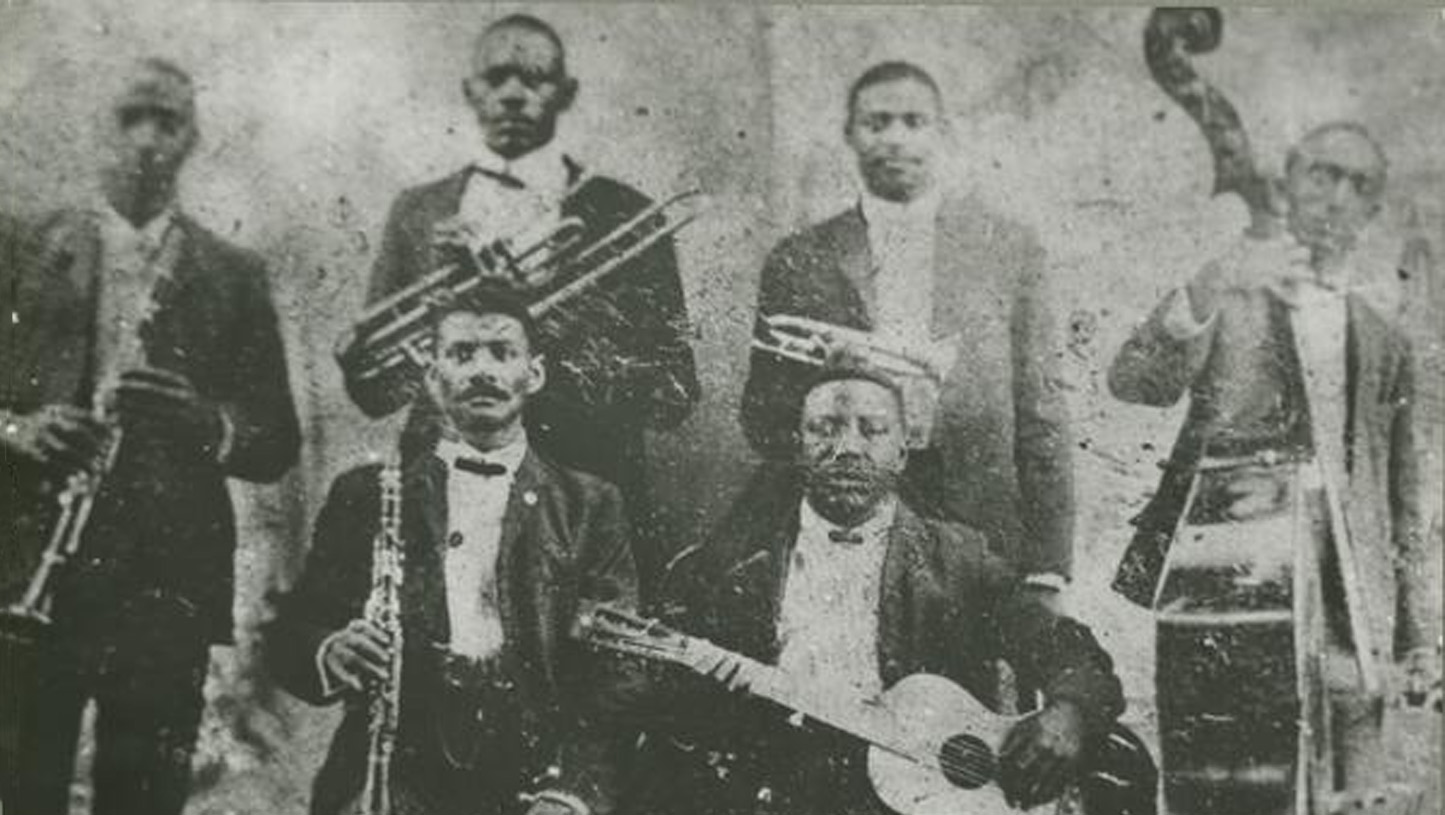The only known photo of Charles “Buddy” Bolden (second from left) with his band, circa 1905. Courtesy of Hogan Jazz Archive, Tulane University.
When Jazz Found Its Voice in a Funky Dance Hall
The Moment Everything Changed
Around 1897, in some sweaty dance hall in New Orleans, Buddy Bolden picked up his cornet and broke the rules. Instead of playing the tune as written, he bent the notes. He sped up the tempo. He made it funky.
The song was called “Funky Butt.” The title alone would have scandalized polite society.
But Bolden wasn’t playing for polite society. He was playing for people who wanted to move, to feel something real, to hear their own lives reflected back in sound. He drew from the African rhythms and chants that echoed through Congo Square every Sunday, sounds that “proper” musicians avoided like a social disease.
That moment of creative rebellion became the foundation of jazz. And jazz became America’s most influential cultural export.
Why Respectability Lost
Here’s what makes Bolden’s story so important: He had a choice. He could have played it safe, stuck to respectable dance music, kept his job without controversy. Instead, he chose authenticity over acceptability. He trusted that what felt true to him might resonate with others.
Fans claimed they could hear his cornet playing for miles around town. That’s what happens when an artist refuses to contain their voice to fit someone else’s comfort zone. The sound carries.
The Sound That Carries
Bolden never made a recording. We’ll never hear that revolutionary cornet. But we live in the musical world his creative freedom created. Every time a musician improvises, bends a note, or refuses to play it exactly as written, they’re standing in the space Bolden carved out when he decided respectability could wait.
Creative freedom isn’t just about artistic license. It’s about preserving the human capacity to imagine something new, to process experience authentically, to trust that what moves you might move others too.
When that freedom gets contained, cultures stagnate. When it gets unleashed, it changes everything.
Bolden’s “Funky Butt” became the sound of cultural evolution.
Randall White
Abbetuck
Read the complete Creative Freedom series:
- The Revolutionary Who Painted Himself Back into a Corner
- The Poet Who Wrote in Blues and Called It Literature
- The Woman Who Painted Flowers Like Monuments
- One Small Act of Creative Courage You Can Take Today

John Akomfrah
Precarity, 2017. Three-channel video installation exploring the life and legacy of Charles “Buddy” Bolden. Courtesy of the Nasher Museum of Art at Duke University.




No responses yet